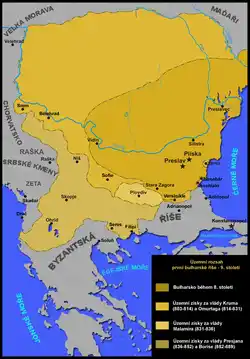
The waves of migration and the complex history of Bulgaria have shaped the unique onomastic picture of Bulgarian Jewish surnames. The interplay of Hebrew traditions, Bulgarian influences, and the infusion of names from various cultures have created a vibrant tapestry of identities within the Bulgarian Jewish community. These surnames serve as a testament to the rich history, resilience, and cultural exchange that have defined the Jewish experience in Bulgaria, and make the genealogy research of Bulgarian Jewish ancestry more complicated.
History of Bulgarian Jewish surnamesHistory of Bulgarian Jewish surnames
Jews have a long history in Bulgaria, with records dating back to the second century CE. They initially migrated from Eretz Israel after the destruction of the Second Temple, and their surnames had Hebrew or Greek origins. Over the years, waves of Jews arrived in Bulgaria after being expelled from neighbouring territories, including Hungary, France, Bavaria, Spain, Sicily, Italy, and Calabria. These migrants brought surnames mostly of Hebrew origin.[1]

During the period when Bulgaria was part of the Ottoman Empire (1378-1878), the Turkish language strongly influenced the entire population, including the Jewish community. The Ladino language spoken by the Jews in Bulgaria incorporated Turkish words. Approximately nine percent of Bulgarian Jewish surnames listed in dictionaries have Turkish origins.
In the late 19th and early 20th centuries, Ashkenazic Jews arrived in Bulgaria from surrounding countries such as Romania, Russia, and Ukraine. With Bulgaria's independence in 1878, the Bulgarian language and culture became integral parts of everyday life, and Bulgarian became the Jews' mother tongue. The process of "Bulgarization" of surnames began, with the addition of the Bulgarian patronymic suffixes "ov" or "ev" (meaning "son of") to names. This transformation was facilitated when Jews were recruited into the army soon after independence.
Origin of Bulgarian Jewish surnamesOrigin of Bulgarian Jewish surnames
Jewish surnames in Bulgaria can be categorized into those of Hebrew origin and those of foreign origin.
Hebrew surnamesHebrew surnames
Hebrew surnames include names from the Bible used as given names, surnames representing physical or moral qualities, professions, events related to childbirth, Hebrew translations of foreign languages, and surnames composed of "ben" or "bar" (meaning "son of"), creating a patronymic structure, and Hebrew acronyms. This tradition can be traced back to biblical times, exemplified by names like Yosef ben David (Yosef, son of David). Over time, these surnames evolved to honor esteemed family members. The usage of the Aramaic "bar" likely emerged during the Talmudic and Gaonic periods.
Within the Bulgarian Jewish community, there are three notable surnames based on Hebrew acronyms. These surnames include:
- Bekhar (Ben kvod-Rabbi)
- Bekhmoaram (Ben kvod Morenu HaRav Menahem)
- Bekhmoaras
- Behmoarash

The last two representing Ben Kvod Morenu HaRav Shimon/Shlomo or Shmuel (Our Honorable Teacher Rabbi Shimon/Shlomo/Shmuel). These surnames reflect the practice of incorporating Hebrew acronyms to signify respect for revered rabbis.
Another type of name within this category consists of surnames formed by combining the Hebrew preposition "mi" or "me," meaning "from," with the name of a specific locality. For example, surnames like Mefano or Mitrani indicate "from Fano" or "from Trani" respectively.
The final group in this category is based on Hebrew grammar, where an adjective denoting a resident or inhabitant of a particular place is created by combining the name of the locality with the suffix "i." For instance, surnames like Ashkenazi and Mizrahi follow this pattern. Ashkenazi refers to someone from Germany (Ashkenaz) or of German origin, while Mizrahi represents an individual from the Orient (Mizrah) or of Oriental descent. This grammatical convention has also been applied to foreign locations, resulting in surnames like Agranati and Saragosti derived from Granada and Zaragoza in Spain respectively.
Surnames of foreign originSurnames of foreign origin
Foreign surnames reflect the diverse origins of the Jewish communities in Bulgaria. Greek, Hungarian, French, German, Arabic, Portuguese/Spanish, Italian, and Turkish influences can be observed in these surnames.
Hellenic originHellenic origin
During Roman times, the Romaniote Jews settled in Bulgaria and their surnames reflected their Greek-speaking background. Some surnames of Greek origin include:
Hungarian originHungarian origin
After being expelled from Hungary in 1376, Jewish refugees arrived in Bulgaria. They settled separately from the local Jewish community and some acquired the Turkish nickname "Madjar," meaning Hungarian. This nickname became a surname. Another group was called Budun, referring to their origin in the city of Buda.[2]
French originFrench origin
Following the expulsion of Jews from France in 1394, some found their way to Bulgaria and merged with the Romaniote community. Surnames like:
- Galiko (French in Greek),
- Sarfati (French in Hebrew),
- Harari (in Hebrew means 'from the mountain', from Montpellier),
- Yahri (from Lunel, the moon)
-- indicate their French origins. Other surnames, such as Crespin and Kuzi, are associated with specific localities in France.
German originGerman origin
In 1470, Jewish immigrants expelled from Bavaria settled in Bulgaria and joined the Hungarian Jews. Together, they formed united Ashkenazic communities due to their similar religious practices. Many of the Bavarian Jews lacked surnames and acquired nicknames like Ashkenazi or Eskenazi (meaning German in Hebrew) or Garti, possibly derived from Gartach in Wuerttenberg.
Arabic originArabic origin
Jews expelled from Spain in 1492 arrived in Bulgaria and gradually merged into the Sephardic community. The Sephardic surnames can be divided into three groups based on their linguistic origin: Arabic, Portuguese, and Spanish. Arabic surnames often incorporated particles like ibn (son of), abu (father), and al (the). For example, the name Ben Danan became Ibn Danan or Abendanan, which, later, under the Spanish influence, became Abendana. Only four surnames are based on geographical places, all of them outside of Spain:
- Alfassi (from Fes, Morocco),
- Alhalel (from Hebron),
- Aladjem (from Persia),
- Tarabulus (from Tripoli, Libya).[3]
Portuguese/Spanish originPortuguese/Spanish origin
Portuguese and Spanish surnames include names of localities, physical characteristics, character traits, professions, and nicknames.
Surnames of Spanish origin describe physical characteristics such as:
While other surnames designate character traits such as:
Professions also inspired surnames, but in this category are only
- Serrero (the one who handles wax for candles)
- Trapero (ragman)
- Purgador (shohet, the one who koshers the meat)
Italian originItalian origin
Jews expelled from Sicily settled in Bulgaria and assimilated into the Spanish community. Over 40 surnames of Italian origin are found in Bulgaria, including:
These surnames can be linked to Italian localities, describe character traits, positions, and professions.
Turkish originTurkish origin
As Bulgaria was part of the Ottoman Empire, the Turkish language had a significant influence on the Jewish community, resulting in over 70 surnames of Turkish origin. These surnames often describe physical properties, character traits, professions, and nicknames:
- Bakhshi (gift)
- Bakal (grocer)
- Kantardji (one who weighs)
- Pamuk (one who deals with cotton)
- Tchelebi (sir)
Many Jews who lacked surnames received nicknames. Over time, these nicknames became surnames, rooted in the Turkish language, including names such as:
Some are linked to geographical places, such as:
- Madjar (Hungarian)
- Gurdji (from Georgia)
- Kadas (from Jerusalem)
- Shamli (from Damascus)
- Valadji (from Wallachia)
Recent Ashkenazic influenceRecent Ashkenazic influence
In the late 19th and early 20th centuries, Ashkenazic Jews from surrounding countries settled in Bulgaria, contributing surnames like:
Bulgarian InfluenceBulgarian Influence

The Bulgarian language had less impact on the Jews' spoken language and surnames compared to other languages. However, the addition of Bulgarian suffixes like ov, ev, or ski to surnames became more common, particularly for Jews who entered schools, the army, and official institutions. Surnames of women also followed Bulgarian grammar, adding ov, ev, or ski to the names. Some Jews adopted locality-related names
In the 20th century, Ashkenazic Jews from surrounding countries added their surnames to the diverse Jewish naming landscape in Bulgaria. Despite the influence of the Bulgarian language, the impact on Jewish surnames was not as significant compared to other languages. However, during the implementation of anti-Semitic measures in 1941, Jews were forced to change their given names and remove Bulgarian suffixes from their surnames. After Bulgaria's liberation and the establishment of the communist regime in 1944, Jews regained their original names.
Celebrities with Bulgarian surnamesCelebrities with Bulgarian surnames
- Michal Ansky, Israeli journalist, restaurateur and TV hostess
- Yehuda Levi, Israeli actor
- Solomon Abraham Rozanes, Bulgarian historian
- Mira Aroyo, Bulgarian-born musician, member of the British band Ladytron
- Esther Arditi, Israeli pilot
- Gabi Ashkenazi, Israeli politician
See alsoSee also
Explore more on Bulgarian Jewish surnamesExplore more on Bulgarian Jewish surnames
- Mathilde Tagger, The Jews of Bulgaria: Their Surnames as a Mirror of Their History
- Bulgarian census 2001
- Pavel Stefanov, Bulgarians and Jews throughout history
- Prominent sephardic Jews of BulgariaVital records of Bulgaria at MyHeritage
- Ethnicity map of Bulgaria at MyHeritage
- A Dictionary of Jewish Surnames in Bulgaria: a Window on Its History at Avotaynu Online

